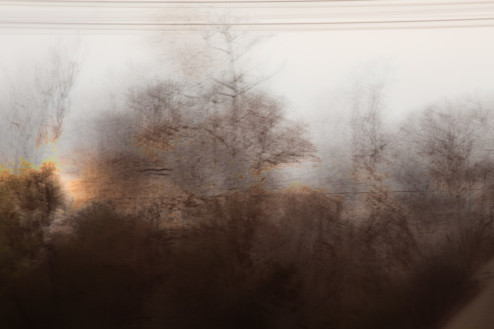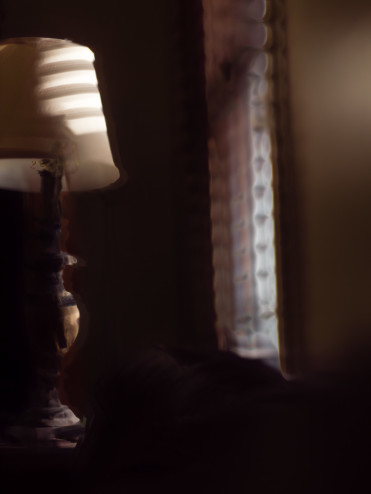Hell has been on my mind this week. Maybe it’s because of the whole “ashes you are and to ashes you will return” of the beginning of Lent. My Lenten reading material probably isn’t helping either.
This year I choose St. Faustina’s diary. It’s a book that I have had for years and picked at here and there — an even attempted it during Lent several years ago. I guess I wasn’t ready for it yet.
This year every page seems to have a message for me — seemingly an example of “when the student is ready the teacher will appear.”
In my Dominican laity community, we have been working through Frank Sheed’s Theology and Sanity and this week reached the section on death, judgement and the end of the world. Great timing, huh?
St. Faustina says that God condemns no one — the soul freely chooses. What would lead a soul to choose eternal separation from the source of all its life and happiness? Our day to day life here on earth. Do we give all of our life to God? Do we keep part of it back for ourselves? Do we turn our back completely on God? As we go throughout our life, our will becomes set by the habits we keep. So much so, that at the end, faced with a final choice, some souls will choose eternal separation, literally Hell, as their final destination.
The moderator of our discussion was pointing out how “majestic” this freedom really is when you think about it. God loves and respects us so much that he doesn’t demand our love, even to the point of our tragic damnation.








Well, thanks for getting my Valentine’s Day off to a lighthearted start. I think I’ll go eat one of the candy bars Luke gave me, wrap my arms around myself, and rock.
OK. I’m kidding. Actually, I laughed a little when I read your simple headline. As you may have guessed, the subject has also been on my mind this week. I chose Living the Catholic Faith by Archbishop Charles J. Chaput for the first of my Lenten books. Like your Saint Faustina book, the good archbishop’s tome has resided on my shelves for years, and I’ve picked it up in the past but never got far. Now, I’ve got four chapters under my belt and most pages are marked with Post-its for later transference of passages into Evernote.
But that hell stuff. So far, I just can’t wrap my mind around these assertions about being the one to choose hell, which is not a place, simply eternal separation from God. It’s not that I don’t accept them as truth, it’s that they leave me cold, leave me feeling like I would assert something to the effect of, “Well, of course I don’t choose to separate myself from God. Yes, you could say that I’m a person of good will, and as such, I’m trying. Therefore, I’m good to go. Besides, there’s all that ‘Jesus saved me and I’ve accepted Him stuff.'” I realize, of course, that that is not good enough. Do others? Should I be at all concerned about what’s between them and God? Well, I’m told that I should, that I should bring Christ to them.
I guess I’m rambling here, but that’s not such a bad thing, is it? As always, you’ve given me more fodder for my noggin, and you provided some excellent stuff when you wrote about Makoto Fujimura’s post, pulling in Frank Sheed’s assertion about imagination: “Thus the reality of any spiritual statement must be tested by the intellect, not by imagination.” I think I understand what he’s saying, that he’s telling me that matters of faith are about more than feelings and pictures in my head, that they can be looked at rationally and should be. I’ve done that as much as I can, and will one day again pick up (and read all of) Monsignor Luigi Guissani’s Religious Sense, which starts with a discussion of reason, and what it really is. As it stands, though, I need the feelings and pictures in my head. I need Dante’s torments, Jesus’ parables, and Lewis’ stories.
I love your reply, Cheryl! And it could be a fitting topic since St. Valentine was clubbed to death… ; )
Anyway, the objection you bring up “but I’m basically a good person” is the same one that we spent the majority of our time on. And it simply boils down to this: you can’t do anything to earn Heaven. Period! Heaven is God’s home – you must be invited in, you have no right to barge in based on your status. So, being a basically good person doesn’t matter a hoot – “depart from me for I knew you not,” it is instead our relationship with God and Jesus.
Another good analogy: as our bodies need blood to survive and grow, our souls need Grace to grow and thrive. Those channels of God’s life within us help us to turn our wills to choose good but they are the showcase of our love, not the ticket that guarantees us admission. Does that help or make things worse? Ch. 23-24 ( only about 20 pages) in Sheed’s book do a really clear job of explaining with lots of better analogies.
I don’t think there is anything wrong with needing the feelings and pictures – after all we do have to grasp some bit of the infinite in order to understand and analogies are perfect for that. IT’s just that sometimes they can create conflicts where none actually exist because of the imaginations limit to our senses.
OK, so now we’re coming to the heart of the matter: it’s about my relationship with God; it’s about being, not doing. I can accept that, but perhaps not easily, since I’m not very good at just being, and the voices in my head will likely never let me believe that my relationship with God is good enough. Is that doubt or humility? If it’s humility, should I be happy that I’m acquiring that virtue? If I think I’m acquiring it, am I really?
I sent you an email. ; ) but there is also this: …in spite of my great misery I fear nothing, but hope to sing You a hymn of glory forever. Let no soul, even the most miserable, fall prey to doubt; for, as long as one is alive, each one can become a great Saint, so great is the power of God’s grace. It remains only for us not to oppose God’s action. St. Faustina
Fr Jacque Phillipe’s The Way of Love and Trust was the key to my breakthrough understanding of this idea. We can only say yes or no – God does all else. His grace is sufficient.